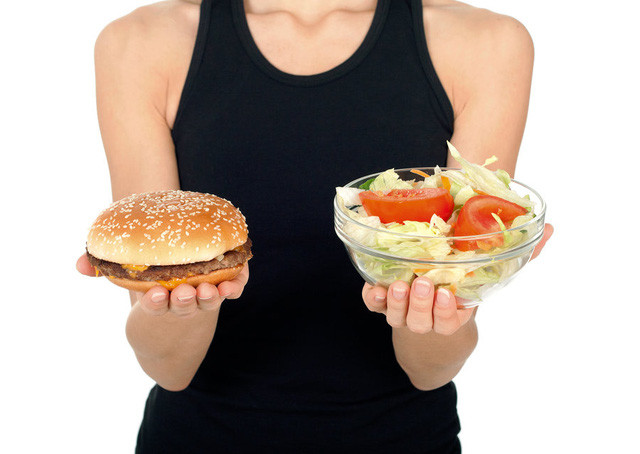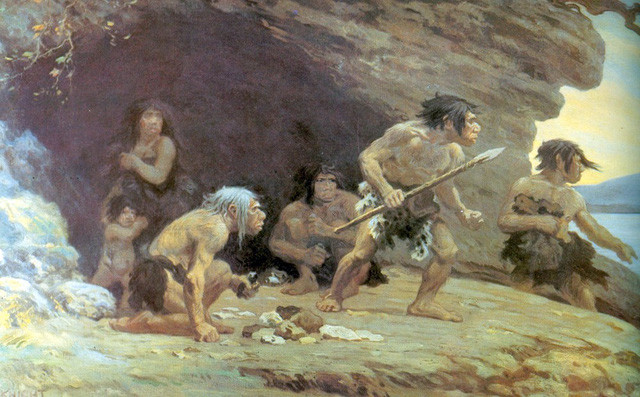Should we humans eat meat?
Did you know that, when it comes to nutrition issues, when will the biggest debate happen? Not a weight loss regime, not fat, protein or even the danger of additive sugar, which is dubbed the ' White Death' of the new era.
The most persistent and classic debate is still: Should humans eat meat? Not hard to understand, food is divided into two sources: animals and plants. While humans have eaten meat before becoming human (Homo sapien), the vegetarian diet has been crowned in recent years. In particular, when the World Health Organization (WHO) stated that red meat is generally related to cancer.

Should you eat meat?
But health is just one aspect to answer the question. While potentially causing cancer, meat can provide many health benefits to the brain and muscles. The question is now repeated 'Should humans eat meat?'.
There are always such vicious circles, if you don't have a more panoramic view. David L. Katz, a specialist in Preventive Medicine with his 25-year experience will show you different perspectives on meat eating. It turns out, it's not that simple when you buy meat from the market, cook up and eat. There are many things to ponder.
First view: Human evolution

Our bodies have physiological adaptations to eat and digest meat.
There is a constant point of view that supports the idea that we should eat meat. That's the evolution created for humans, Homo sapiens, or even the ancestors of primates that lived 6 million years ago, becoming an omnivore.
That means we are able to absorb energy and nutrients from both plant and animal foods. Our bodies have physiological adaptations to eat and digest meat. Some scientists also discovered characteristics that characterize the consumption of cooked meat in particular.
But this point immediately sets off a series of critical questions. Include: What is the difference between the meat of today and the meat of the Stone Age? How does the health of modern people compare with prehistoric times?
In fact, we already know that our flesh today is very far from meat in prehistoric times, which 'Creator' has made us adapt to eat. We also know that human lifespan today is almost double that of ancestors living in the old stone age. We also know that people still grow well when fasting, a diet consisting entirely or mostly of plants.
So, ultimately, people evolve into an omnivore that only gives us choices. Biological characteristics allow meat to be present in the human diet. But on the contrary, we do not necessarily have to eat meat meals.
Second view: Epidemiology and health

Meat today is very different from meat in the Stone Age.
What we know today about diet and health does not rule out the possibility that a similar diet (Paleo diet) can become the optimal diet for humans in the future. hybrid
This diet is characterized by the majority of food comes from meat. But do caveman people go against the recommendations of the World Health Organization today about the relationship between red meat and cancer? The answer is no. As said, meat today is very different from meat in the Stone Age.
Now, if you are interested in epidemiology and health on a carnivorous and non-carnivorous community, observe the diet of our world-independent communities. Inuit, indigenous people in the Arctic region are a group of people who eat meat only. Research results show that the Inuit health, physical and longevity are not really good.
On the opposite side, there are many vegetarian communities. We can count as typical Kogi tribes in Colombia, where their average life expectancy is over 100 years old.
Notably, the eating trend of independent communities leaned toward having more vegetables. The only meat-eating tribes like the Inuit are really rare. And for themselves, it seems to be compulsory and not choice. Vegetables on the North Pole will be something very luxurious.
3rd perspective: Physical needs

People, we are omnivores so we simply have the right to choose.
Vegetarian diets are often ridiculed by those who focus on muscles. They argue that a strong and healthy body can only be made with a meat diet, even meat.
The truth is not so. Just take a few examples of animals, do you know that horses, or even gorillas, a species that has close relatives to humans, eats only plants. But surprisingly, they can still build muscle and possess remarkable physical strength.
The simple reason, protein, a factor needed to build muscle is either a plant or a meat source. So the deciding thing is the physiological cycle in your body, not your thoughts. Predators will satisfy its physical needs by eating meat, herbivores will eat plants. As for humans, we are omnivorous so we simply have the right to choose.
4th perspective: Conserving the planet

The Creator gave birth to predators, and they do not endanger the existence of the planet.
The Creator gave birth to predators, and they do not endanger the existence of the planet. No animal has ever completely broken the biological balance between animals on Earth.
But that's just when we humans don't have the population of a billion people. To feed such a population, the demand for meat in nature is not enough, even humans have to create livestock agriculture. Today, it contributes 18-25% of total greenhouse gas emissions.
Experts predict that by 2050, if the safe limit of greenhouse gas emissions is 10, the livestock sector alone will release more than 7 parts. It also accounts for nearly 9/10 parts of the biomass safety level. These impacts will lead to many irreversible destruction processes.
Homo Sapien ate meat, it seemed like a nightmare for the planet.
5th perspective: Ethics

We were forced to use mass production methods to feed ourselves.
If you are calling flesh eating immoral, this is quite absurd. The ability to eat meat is a natural nature of mankind. So, blame morality for 'Nature' is a meaningless and arrogant act.
Looking at predators, do we have their moral judgments? Ethical behavior, if considered on human flesh eating, only proves that we are absurdly arrogant. You want to say that you are not an animal. But we are exactly in the ranks of animal-eating animals.
It is agreed that there may be some 'absent' ethical standards in mass production and slaughter. But can you imagine what will happen when all 7 billion people have to hunt and gather themselves? We were forced to use such mass production methods to feed ourselves.
Conclude

People should eat less meat.
Now, sequence all these views, you will get a relatively panoramic picture of how we are eating animal meat. Should people continue to eat meat? It turns out the answer is not simple.
Suppose that the population is getting more and more crowded, if meat becomes 'pure' and healthier, if our level of physical activity increases, if meat production becomes clean and humane. more and the planet's resources are infinite, perhaps the answer will be: yes.
But look at the fact that none of these assumptions tend to come true, at least in our time. In terms of health, environment and moral judgments, the advice given to us today is: People should eat less meat .
- Humans know how to use whale meat 14,500 years ago
- Red meat is not so dangerous to health as we think
- The earth is being destroyed because humans eat a lot of meat
- What do you know about 'vegetarian' meat?
- Successful development of pork from stem cells
- 6 mistakes when cooking meat makes you pick up the disease
- 10 mistakes everyone makes when cooking meat
- Eating dog meat - a controversial tradition in history
- How good white meat, red meat is good, eat right: You eat a lot but you don't know!
- Why are ostrich meat red?
- Making meat from ... air
- If you don't eat meat, what will people do?
 'Fine laughs' - Scary and painful torture in ancient times
'Fine laughs' - Scary and painful torture in ancient times The sequence of numbers 142857 of the Egyptian pyramids is known as the strangest number in the world - Why?
The sequence of numbers 142857 of the Egyptian pyramids is known as the strangest number in the world - Why? History of the iron
History of the iron What is alum?
What is alum?